By Amy Taubin in the September-October 2007 Issue
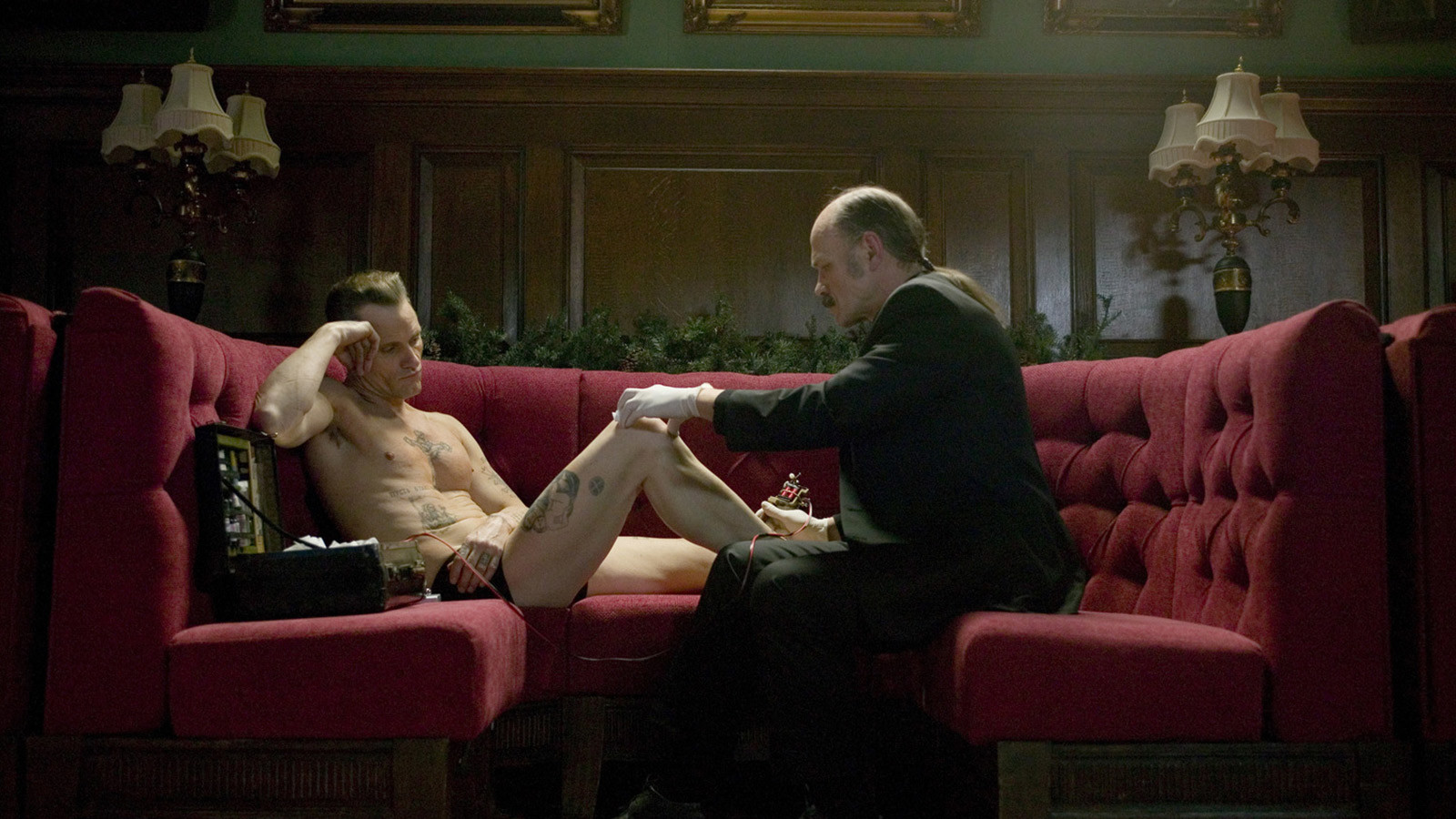
Foreign Affairs
David Cronenberg talks about his strangely intimate new Russian mafia movie Eastern Promises and snuff films on the Internet
Set in London within the ritualized underworld of the Russian mafia—the dread vory v zakone—David Cronenberg’s Eastern Promises couldn’t be further, in terms of ambience, from the Americana of A History of Violence; and yet the two films are bonded, first by the enigmatic presence of Viggo Mortensen, once again playing a character with a mysterious past, and by the eroticized violence that is the currency of Cronenbergian male relationships.
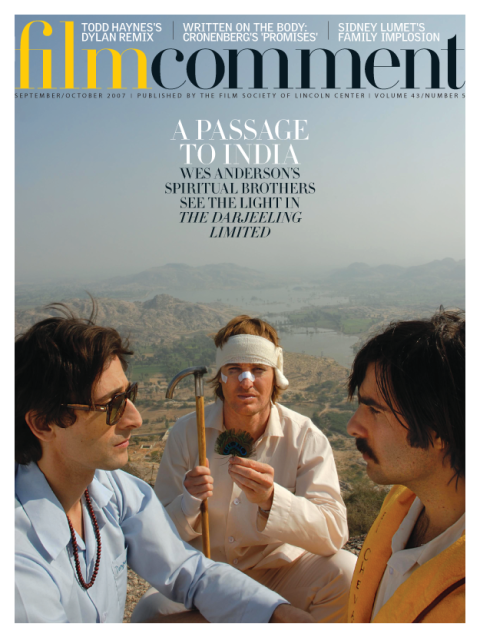
From the September-October 2007 Issue
Also in this issue
Floating intermittently above the film is the voice of a 14-year-old Russian girl who, lured to London and imprisoned in a mafia whorehouse, hemorrhages to death in childbirth. A hospital midwife (Naomi Watts) finds the dead girl’s diary, which leads her to the red-plush restaurant that is the mafia’s front. Watts’s character opens the door to this illicit world but she remains an outsider, hovering at the periphery of the narrative. Cronenberg, however, with a mastery of film space that now seems like second nature to him, ushers us deep inside, placing us in intimate proximity to the casual barbarism of everyday life among thieves and murderers. The film builds to an extraordinary action sequence, a ballet of butchery choreographed for a trio of performers and set in the theater of a Russian steam bath.
Although the version of the film I saw in July was unfinished (Cronenberg was still mixing the sound at the time of the interview below), it left me literally shaking but also feeling that I now possessed secret knowledge. And knowledge, no matter how terrible, is power.
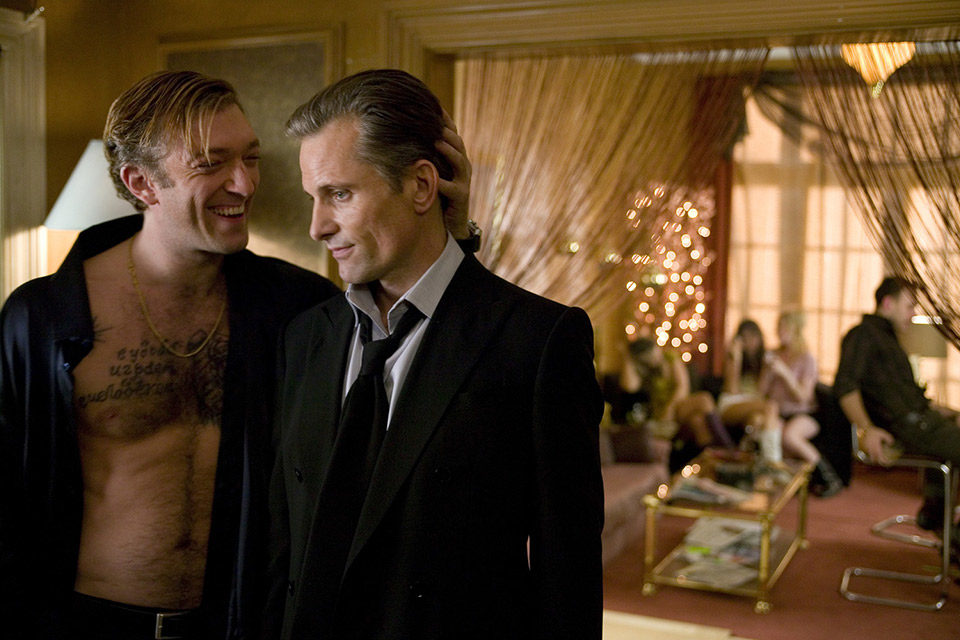
Eastern Promises
How did you get involved with Eastern Promises?
The script was developed at the BBC under David Thompson. It was very different when I first read it, but the characters and the subculture were all there. It was written by Steve Knight, who wrote Dirty Pretty Things for Stephen Frears. And it’s obvious he has a good feel for embedded subcultures, which is something that appeals to me too. Those strangely enclosed little worlds where rules are made up and become like the laws of nature. I was intrigued by that very intense hothouse climate.
It’s the first film you shot entirely outside of Canada. What was it like working in London?
It was good because the crew was good and the producers made me feel as supported as you can possibly be, and I brought most of my heads of department with me. But once I start shooting, wherever I am just becomes a big film set. Talk about a subculture—when you’re shooting you’re barely aware of anything else. Although the polonium poisoning happened just down the street from me so I couldn’t ignore that. When we started, the subject of the Russian mob in London was not particularly in the news, but pretty soon it became radioactively hot. Not that it’s exactly the same subject as the movie, but it is connected.
Like most of your movies, this one pivots on the question of identity. Viggo Mortensen’s character, Nikolai, has his identity literally written on his body in the form of the tattoos he got in a Russian prison.
Viggo does incredible research on his own. When we started, he sent me this two-volume book, Russian Criminal Tattoos. And a friend of his, Alix Lambert, had done a documentary about Russian prison tattoos called The Mark of Cain. So they became the focus of our intense rewriting. Steve Knight had alluded to tattoos, but in the rewrites we brought that forward, and it gave the story a real visual and metaphorical center. And then there’s such a wealth of books about modern Russia and the disaster it is in so many ways. All of those things were fed into our production.
The fact that Nikolai’s story has been coded onto his flesh is part of what makes the fight in the steam bath so extraordinary. How did the original script describe the scene?
The script said, “Two men come in with knives and there’s a fight.” The question of whether Viggo is naked or not isn’t addressed. And of course the details of the choreography are not in the script. That is the work of many months working with the actors, and with Carol Spier, the production designer, and with the stunt coordinator. If I had had an actor who wouldn’t play it naked, I would have had to shoot it with a towel around him, which would have been pretty silly, or I would have had to shoot it in a very restrained way. But for Viggo, there was no question. He said, “I have to do it naked.” That freed me to do it the way it had to be done. It took three days to shoot, but planning went on constantly. Every week, we’d work on it and refine it more and more. Viggo got really bruised. He didn’t tell me, but the makeup people did. They had to keep covering his bruises.
Eastern Promises
I found a piece that someone had posted on Ain’t It Cool News about having seen a preview of the film.
Was it the guy who was obsessed with Viggo’s balls?
I don’t know if I performed an act of repression, but I don’t remember seeing his balls.
You do see them. It’s just that they go by rather quickly.
Right. I meant I didn’t notice them in particular.
It wasn’t like there was a close-up of them. But this guy was obsessed. He even wrote “big hairy balls.” Well, that’s one way of looking at it. They’re definitely there, as you would imagine, but it’s only if you’re looking for them that that’s what you see. Because mostly he’s shot in full figure. So when people decide to run the DVD frame by frame, they are going to see everything at one point or another. Of course, a lot of the time it’s going to be slightly blurred because he’s in motion.
It’s a very homoerotic film. And not just because of that scene. You have this cocooned, violent all-male society where everyone is jockeying for power. And I think the central relationship of the film is between Vincent Cassel’s character, Kirill, the real son of the mob leader, and Nikolai, the “adopted” son, who Kirill sees as a threat while at the same time being crazy in love with him and unable to admit it.
I discussed this with Vincent a lot, and he was completely ready to do this. He’s played gay characters before. At first, he was thinking that he would have to approach it that Nikolai is a father figure to him, which he partially is also. But then it morphed as we played it, and became very flirtatious. You can see how the Nikolai character is mercilessly manipulating him by using the sexuality to turn him on and off. And that was definitely in the script.
But by the end, there is something oddly tender about that relationship, because Nikolai seems to have pity for him.
Yes, it’s odd because it seems so real. And the Nikolai character is ultimately so mysterious that you don’t know if it’s pure manipulation or if there’s real compassion there. It’s hard to say.
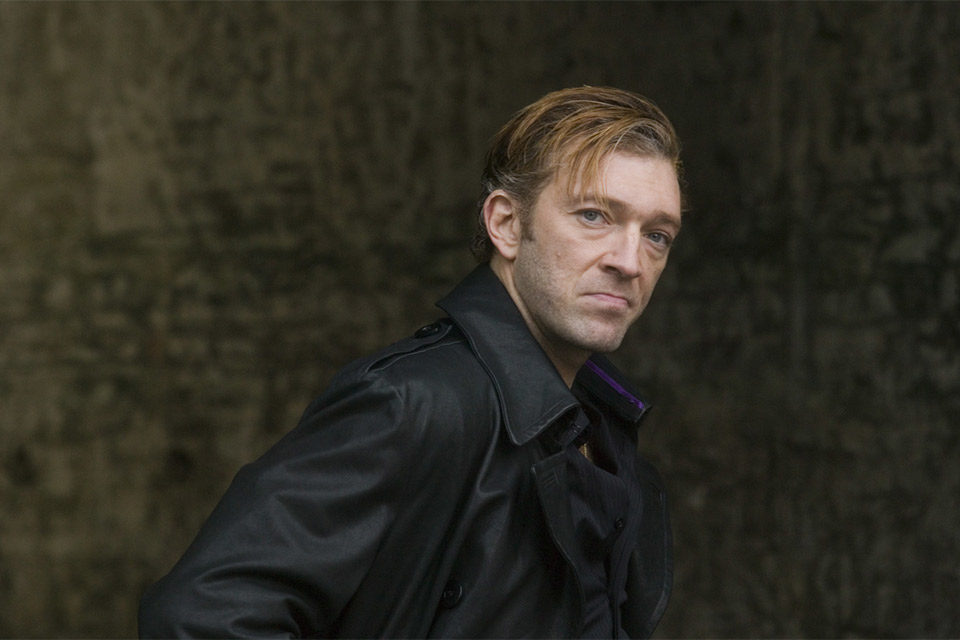
Eastern Promises
Could you talk about the violence? There aren’t many violent scenes—only three or four—but they’re very bloody, and one of them happens at the very beginning, or two do, really, if you count both the throat slitting and the pregnant girl hemorrhaging to death. After that, there’s one other throat slitting and the big scene in the steam bath. But they’re placed so that the effect of the entire movie is that it’s written on the body in an extreme way.
I remember when I first picked up the script and saw the title, Eastern Promises. I thought, this sounds like a cheap perfume, especially since in North America, “Eastern” doesn’t mean Russia, whereas in England it does. But then, the first scene changed my whole attitude, not only because it was violent, but because it introduced so many interesting elements—a kind of retarded murderer and a Turkish/Chechen cultural combination. And there are very few characters in the violent scenes. It’s intimate, which makes it more intense. The placing of those scenes is crucial. We need to know all the time that they are criminals and they are dangerous. The response I’ve gotten is that the movie is incredibly violent. And I keep saying, “Did you see The Departed? The body count there and the brains all over the wall?” But some people seem to feel that this movie is more violent than The Departed. So then, what are you talking about? You’re not talking about how many incidents, because The Departed has dozens and we have four. Somehow, it’s the close-up, the intensity, the carrying-through.
Also, knife violence is different from gun violence. And because it’s shot so close, the violence is very sexualized.
We have no guns in this movie. There were no guns in the script. The choice of those curved knives we use in the steam bath was mine. They’re not some kind of exotic Turkish knives, they’re linoleum knives. I felt that these guys could walk around in the streets with these knives, and if they were ever caught, they could say “we’re linoleum cutters.” And it’s almost like they are using their knives to re-tattoo Nikolai and change his identity by changing the marks on his skin.
On another subject, I want to ask you about At the Suicide of the Last Jew in the World in the Last Cinema in the World [Cronenberg’s four-minute film for Chacun son cinéma, the compilation put together for the 60th anniversary of the Cannes Film Festival]. I didn’t think anyone could do anything anymore that would make that audience really uncomfortable, but your film did.
I hope so.
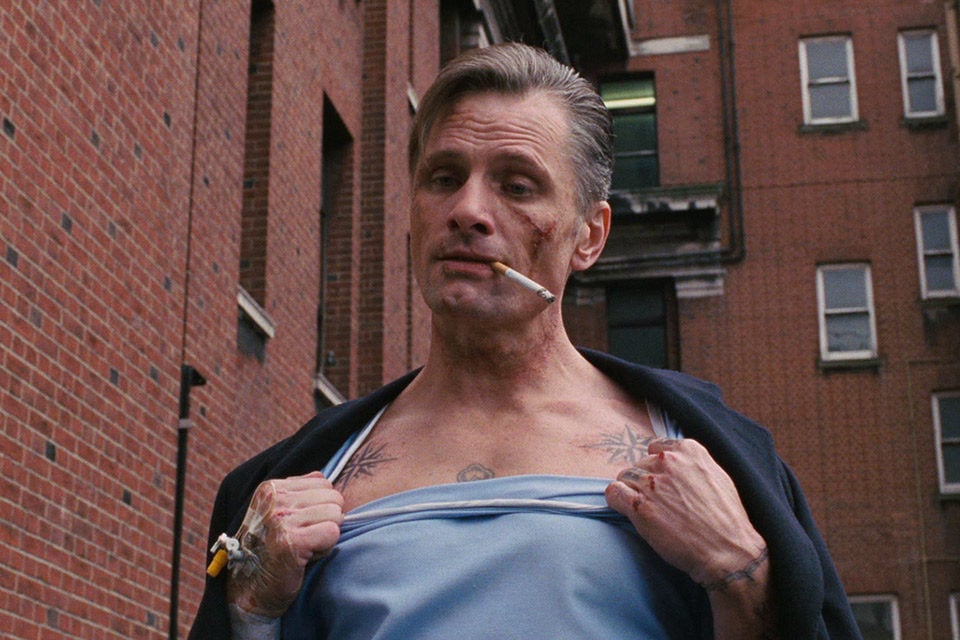
Eastern Promises
You often talk about being an atheist, but your secular Jewish identity seems to be more on your mind than in the past.
I think circumstances have forced it a little more out in the open. We all know about the Holocaust and that it’s never really gone away. There’s just been an incident here in Canada. A radical Muslim preacher had a regular show on VisionTV, a television network devoted to religion. Every week he’d give his sermon, saying Jews are parasites, the Holocaust was divine retribution, and ultimately all Jews will be annihilated. People started saying we don’t think this should be on the air in Canada, so they pulled him off, and then they were going to put him back on because he’s highly respected. Meanwhile the guy issues a statement saying, “I’m not anti-Semitic. Everything I say is just prophecy. It says in our holy book that the Jews will be annihilated. It’s not that I don’t like Jews.”
So in that short film, it was interesting to think for all these people who would like there to be no Jews. Let’s propose we’re down to the last Jew. What does America think, and what does popular media culture think? I have one of my younger TV commentators saying, “I’m much younger than you so, no, I have no memories whatsoever.” So will this yearning for extermination of Jews really make much of an impression? Or will it be a moment of dancing in the streets in certain cities of the world, and then what? I was alluding to all that without making a big deal of it. I don’t think this is something new for me to be thinking about. I was also thinking of all those nice beheadings you can get on the Internet.
I was thinking about that in Eastern Promises. The current biggest provider of snuff pornography is the Muslim extremist movement. Remember when Al Goldstein from Screw magazine offered $50,000 if someone could bring him a real snuff film, and no one could? Now they’re everywhere, and most involve beheadings and throat slitting, and once again, as in Eastern Promises, it’s very sexual, very intimate. And needless to say, very disturbing.







